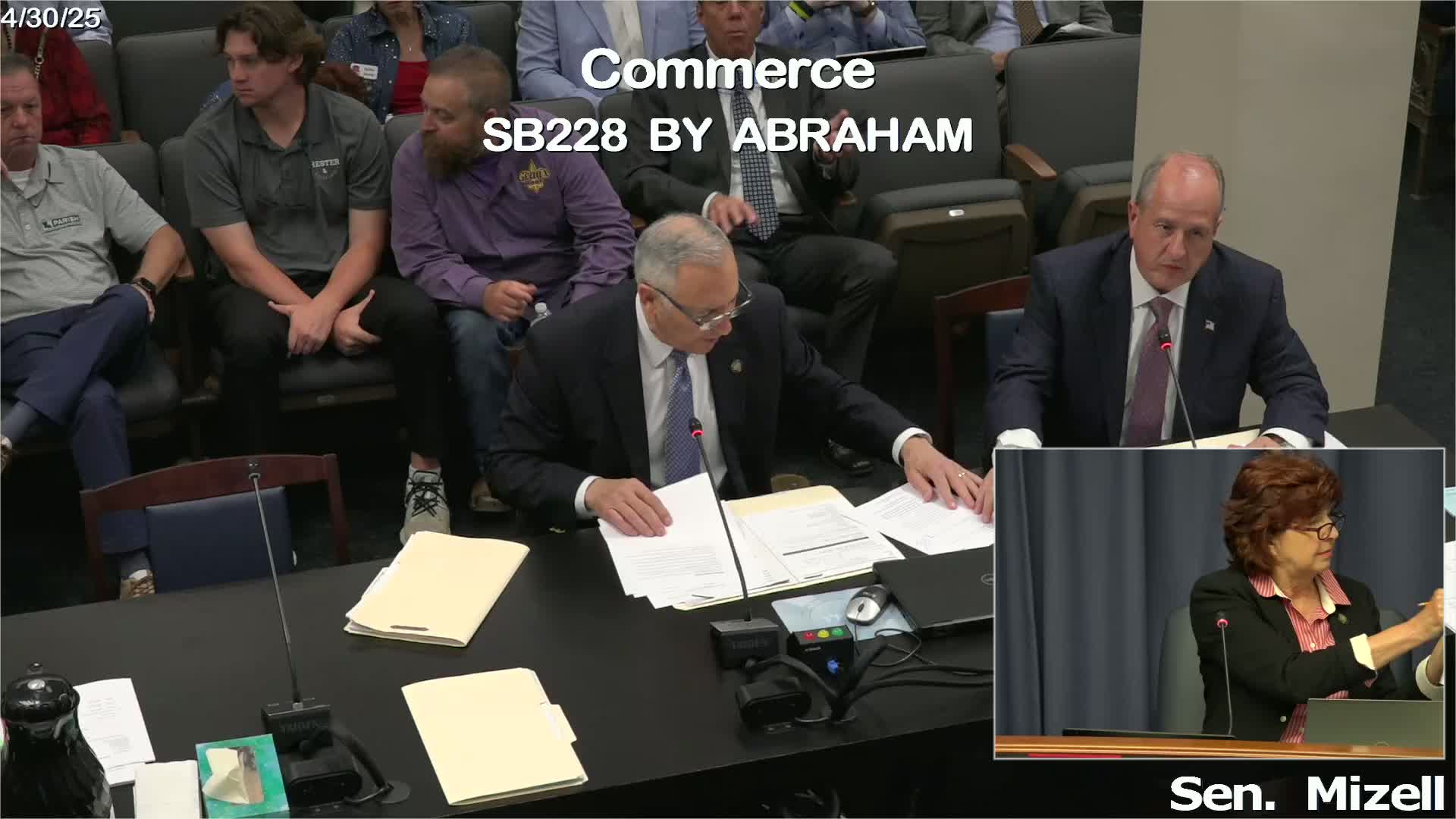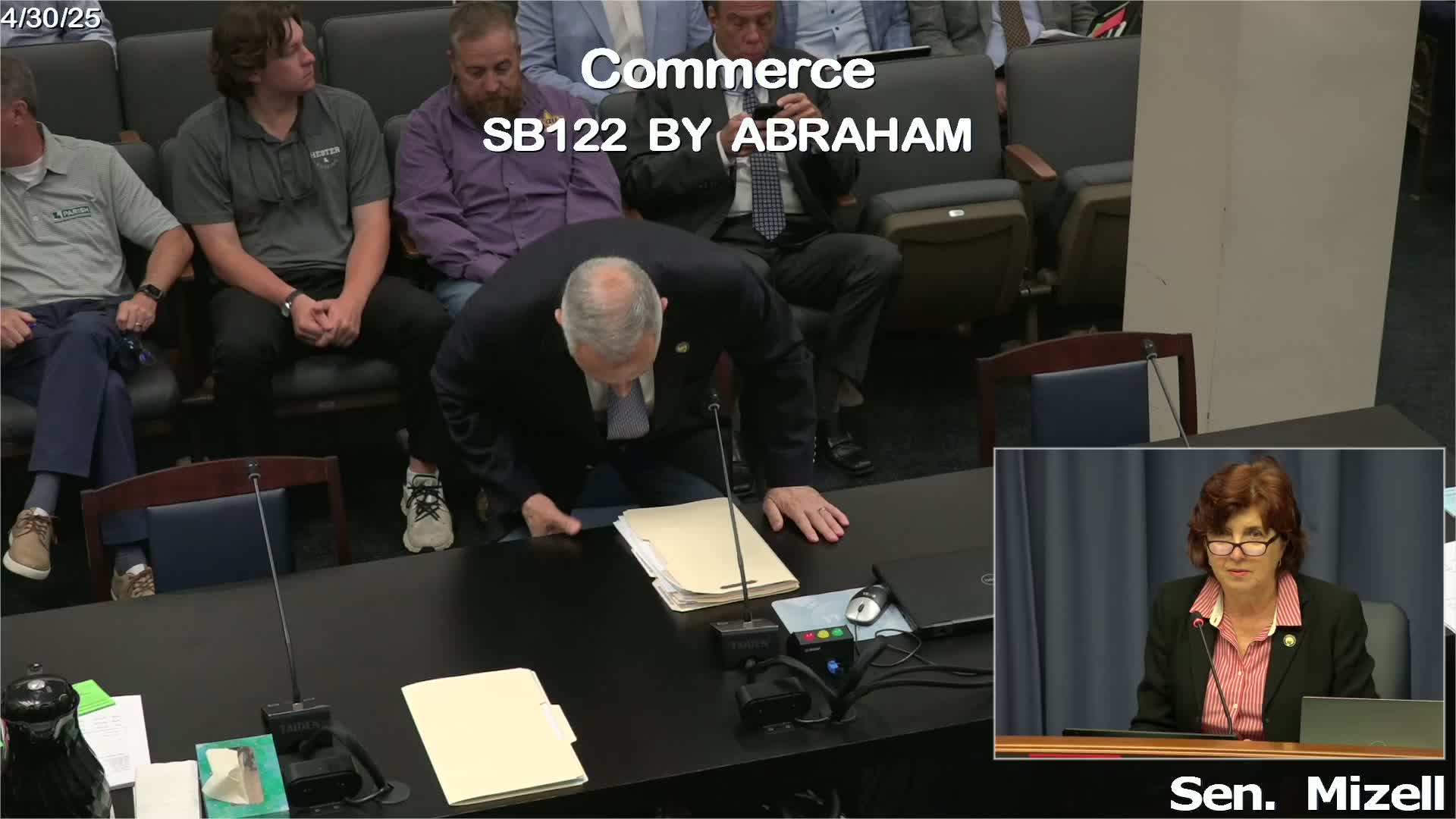Article not found
This article is no longer available. But don't worry—we've gathered other articles that discuss the same topic.

Committee hears wide-ranging foreign-transparency bill; debate centers on university gifts, solar panels and Chinese-made drones; bill deferred for a week

Senate committee approves moving State Uniform Construction Code Council to contractors board and reduces membership

Panel advances overhaul of contractor licensing, adds residential roofing and solar installer classifications

